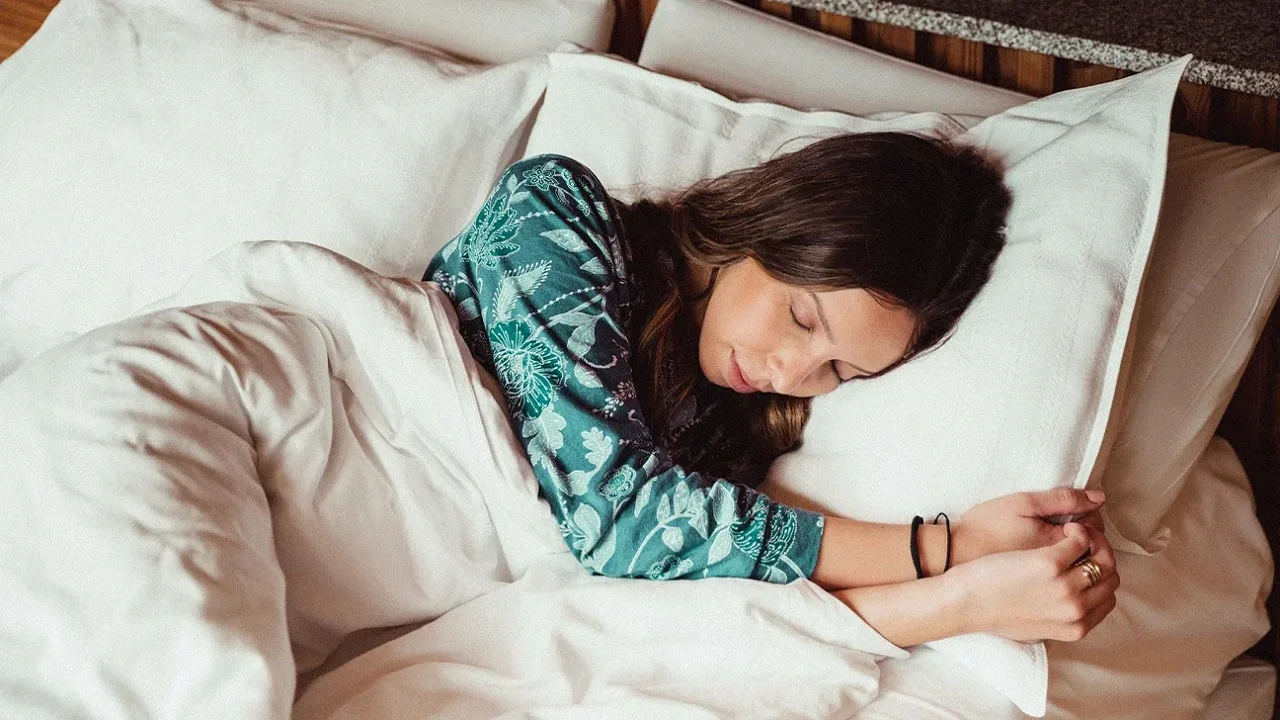What should you do if you can’t sleep right now, sitting upright in bed and reading this article?
We have summarized the SOS sleep tips with immediate effect for you:
Get up and distract yourself: Getting up helps. As strange as it may sound, you should get up if you can’t fall asleep. Meditation, breathing exercises, etc. help you to relax, let go, and think about other things. When you’re finally distracted and tired, go back to bed.
Write down worries, anticipation and to-dos : If distracting yourself from thoughts and problems doesn’t help, then try to actively solve them. In many cases, just talking about them or writing about them helps. When everything has been said, all thoughts expressed or written down, then your head can calm down.
Ventilate: Humid, stuffy or particularly dry air keeps you awake. It helps to ventilate the room again shortly before going to bed. Humidifiers help against dry air, especially in winter.
Put on warm socks or, conversely, switch to a light duvet: The bed linen should also be adapted to the season. Because if you sweat or are cold, you won’t fall asleep particularly quickly.
Reading, but nothing strenuous or exciting
10. Turn on a sleep app, podcast or radio that puts you to sleep with stories or relaxation exercises: Small children can fall asleep faster if they have stories read to them. Background noises can help adults, such as the sound of the sea or stories in the form of audio books or podcasts.
Fall asleep quickly: prepare for the night
We don’t recommend magic potions or voodoo dances. We show you how to fall asleep quickly and sleep peacefully with simple hacks. With these tips, it’s guaranteed to work.
-
Turn off all light sources. If all the windows are darkened, but the laptop is still shining dimly in the room or a music box is flashing, then the atmosphere for falling asleep is not yet ideal.
-
The same applies to noises that could disturb you when you are trying to fall asleep. Whirring electronic devices or ticking clocks should be banned from the bedroom.
-
According to experts, the perfect room temperature for falling asleep and sleeping through the night is 18°C. Warmer or colder temperatures can make falling asleep more difficult and take longer.
-
Make way for a truly restful sleep! The bedroom can be a home office and a place of retreat, but work materials and laptops should be put away at night so that you can actually use the room for sleeping.
-
Even silent clocks can be distracting. If you constantly check the time to recalculate how much time you have left for sleep, you won’t be able to relax. Then all clocks should be removed from the bedroom.
-
Often it can also help to move the bed . Regardless of whether you believe in Feng Shui or not, the ancient Chinese teachings about the flow of Chi energy recommend placing the head of the bed against the wall – a change of perspective can bring calm into the room.
-
There are also calming wall colors for the bedroom, such as light pastel tones or super modern soft beige and light gray. Fiery red or bright orange tend to disturb the calm.
